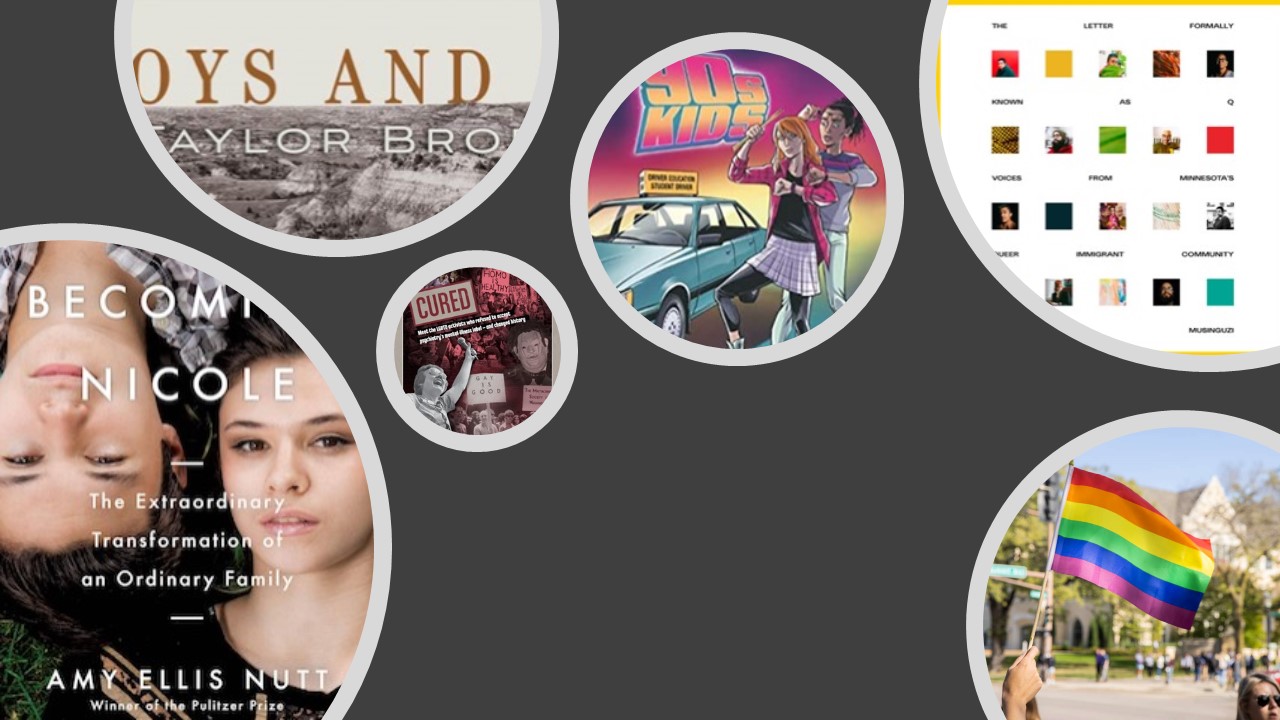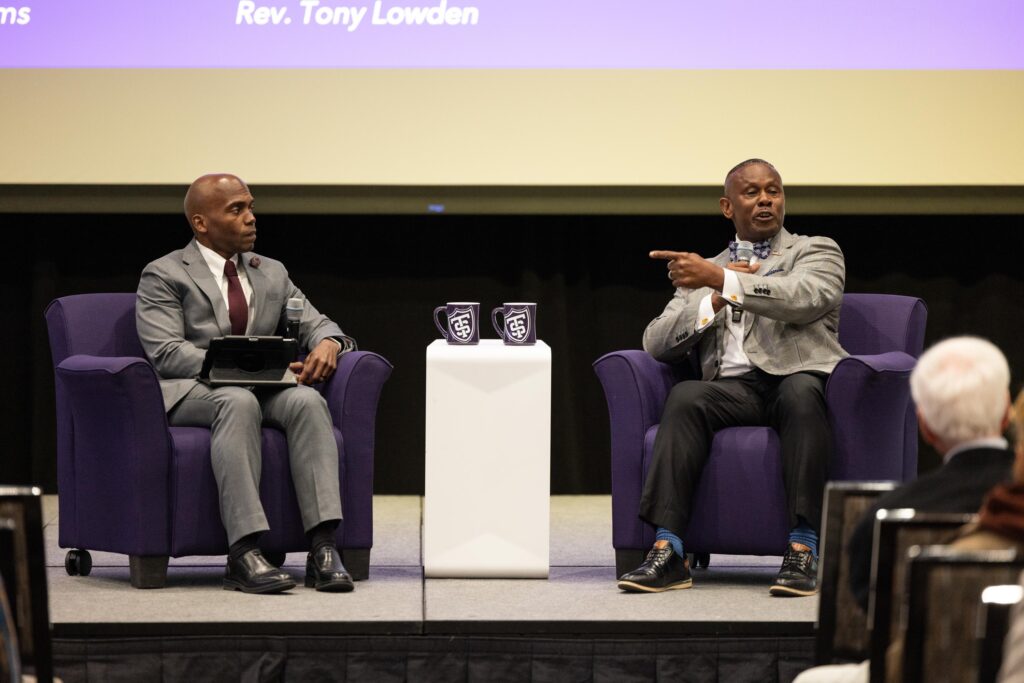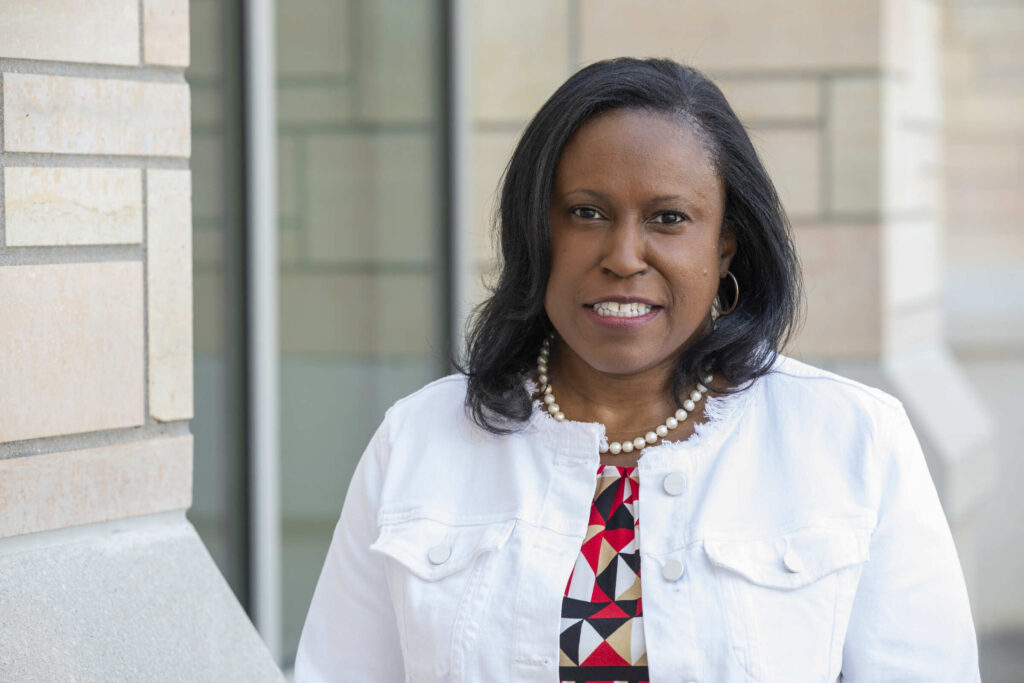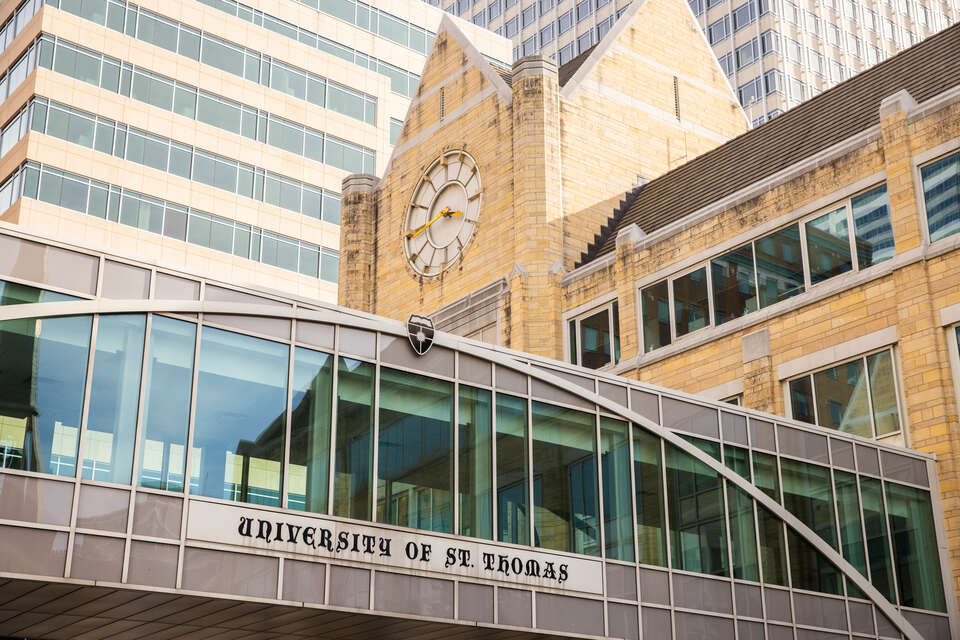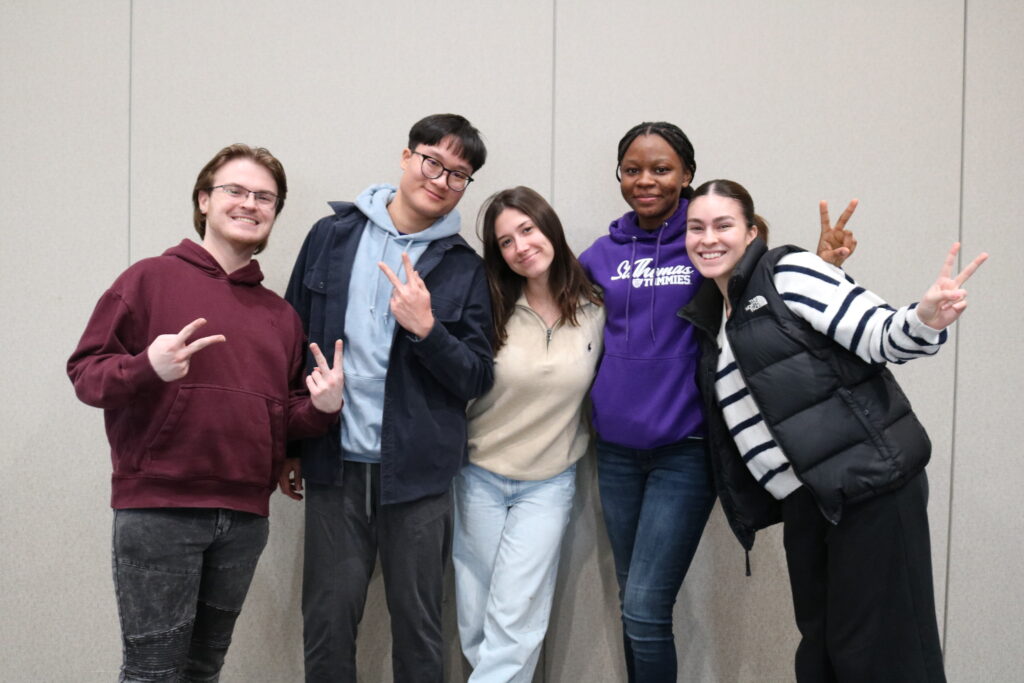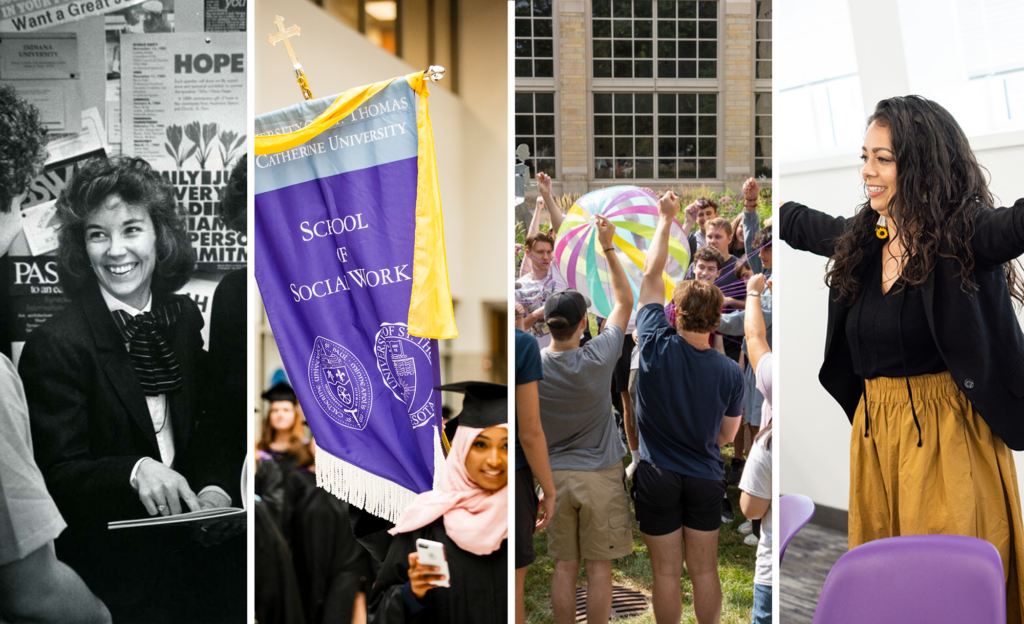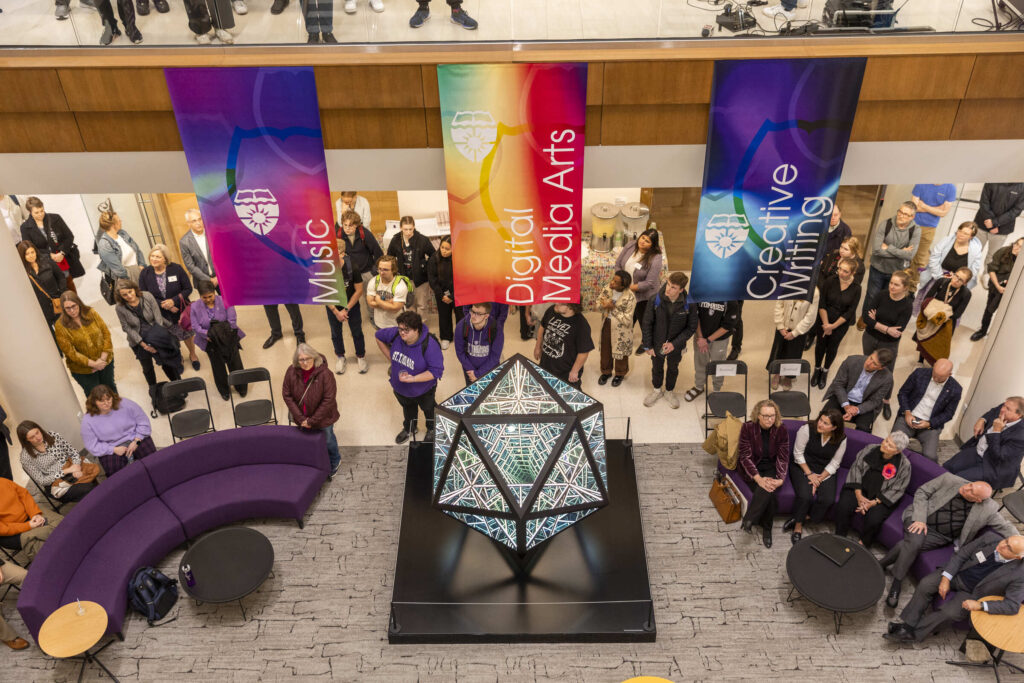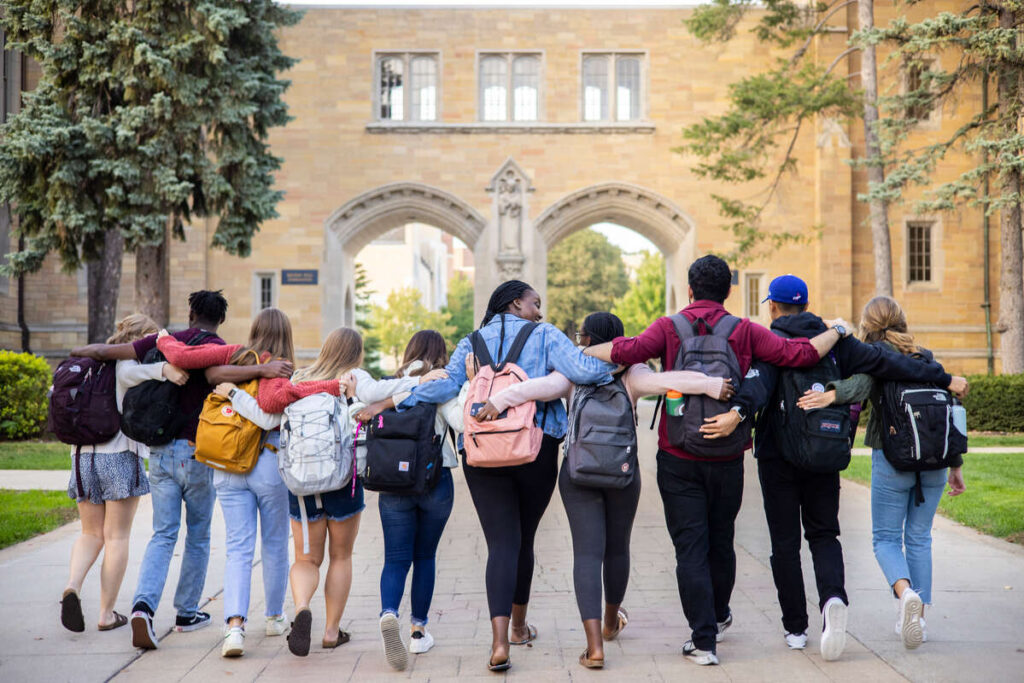To celebrate LGBT History Month, the Newsroom asked some members of the St. Thomas LGBTQIA+ and Allies Faculty and Staff Association for book and film recommendations to help provide the university community some diverse perspectives. Here are their thoughts.
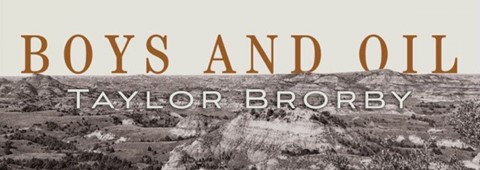
Boys and Oil by Taylor Brorby (2022)
The book Boys and Oil: Growing Up Gay in a Fractured Land is a deep and explorative memoir of life in North Dakota for gay environmentalist author Taylor Brorby. The beauty of the prairie harshly contrasts with the mean realities of self-discovery and peer judgment. Brorby’s reflection on his past juxtaposes beautifully, and critically, against his experiences with climate change and activism. As Brorby moves through life, finding new places to root and grow, we learn that some soils, some people, are more nourishing than others but that even in the most adverse conditions, life perseveres.
Recommended by Nicole Brumley (she/her/hers), DPA and SCO in Student Data and Registrar – ITS.
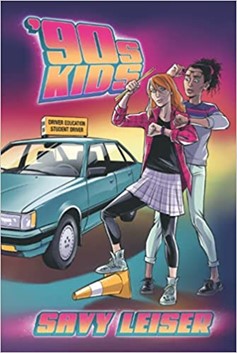
'90s Kids by Savy Leiser (2021)
'90s Kids is a fun page-turner that addresses the oft asked question: “What if ‘Back to the Future’ were gayer?”
Engage your suspension of disbelief and indulge in the story of two teens from 2006 and 2015 who both end up time traveling to 1989, where they must balance their thirst for adventure with being on the run from the DMV and their anxieties about a time paradox. You know. Normal teen stuff.
A fun YA novel with plenty of references and nostalgia for millennials to enjoy, '90s Kids is a great all-ages book to curl up with on a cozy fall day. Along the way, you’ll also gain an appreciation for how much progress has been made in the last 30 years – even the last 15 years – with regard to interracial relationships, LGBTQIA+ acceptance, and even “Star Trek” culture. When it feels like we have a long way to go, it is humbling to realize how far we’ve already come.
Recommended by Arden Ashley-Wurtmann (she/her), math placement support specialist.
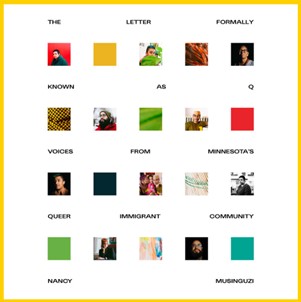
The Letter Formally Known as Q: Voices form Minnesota's Queer Immigrant Community by Nance Musinguzi (2021)
The Letter Formally Known as Q is a brilliant book of portraits and interviews of queer and trans American immigrants of color from Cameroon, India, Mexico, Puerto Rico, and Kenya. The book is an oral history of the subjects’ personal experiences of migrating and making home in the Twin Cities. This book of beautifully composed photos brings the reader into the subjects’ lived experiences and the ways in which their bodies are policed, erased and exploited, but also the love and joy that comes from finding community and place in our state.
Recommended by Hugh Smeltekop (he/him), the assistant director of the STEM Inclusive Excellence program.
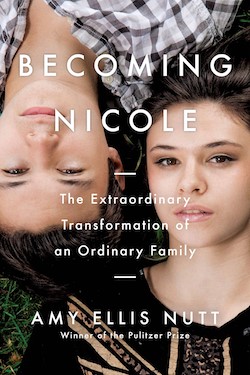
Becoming Nicole by Amy Ellis Nutt (2016)
The book Becoming Nicole is a biography chronicling the life of a young trans woman and her small-town American family. The story begins when Kelly and Wayne Maines adopt a set of twins, Jonas and “Wyatt.” A beautiful, albeit often tragic story emerges in which Wyatt becomes Nicole, facing opposition from family, friends and community while fighting to express her sexual identity. Nonetheless, Nicole persists in her advocacy for her selfhood, eventually winning over her family as her allies and advocates. Sprinkled throughout the book are facts about what it means to be transgender, illuminating the taken-for-granted, unchallenged assumptions about gender and identity.
Recommended by Lance T. Peterson (he/him), associate professor of social work and Interim Master of Social Work program director.
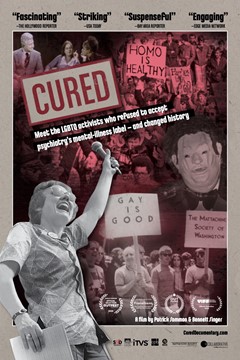
‘Cured’ (2020)
After a chilling introduction warranting a trigger warning, the film documentary “Cured” documents how LGBTQIA+ activists fought to remove homosexuality from the psychiatry profession’s diagnostic and statistical manual of mental disorders. Numerous individuals are profiled in the film. Reverend Magora Kennedy recounts the environment prior to the Stonewall uprising. The viewer learns of an anonymous gay psychiatrist who gave public testimony in coordination with LGBTQIA+ activists. Dr. Charles Silverstein delivered a highly researched presentation to APA’s nomenclature committee arguing for removal of the pernicious designation. Collectively, these activists asserted the right for gay people to define themselves rather than be defined by psychiatrists.
Woven throughout the film, viewers witness relationships that are undoubtedly painful. Yet, some relationships have redemptive qualities. And some are #relationshipgoals, like when the viewer hears Kay Lahusen recount the activism both Kay and partner Barbara Gittings embarked on together. Nominated by GLAAD for outstanding documentary, this film has garnered praise far and wide. Stream the film online and read more about the activists whose energy and persistence compelled the American Psychiatric Association to reevaluate and remove homosexuality from their diagnostic system.
Recommended by Consuelo Cavalieri (she/her), associate professor in the Graduate School of Professional Psychology.
